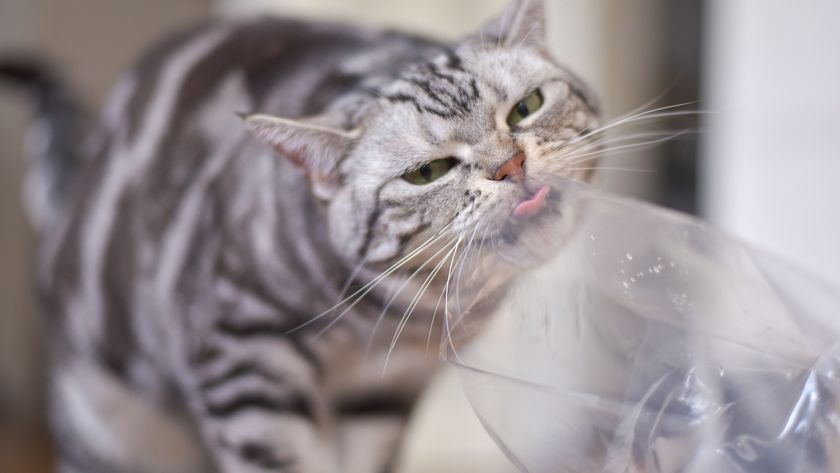Female Panda Recovering After Artificial Insemination

The "black-and-white rock star" of the Smithsonian's National Zoo, female panda Mei Xiang, is recovering tonight (April 30) after being artificially inseminated with up to 800 million sperm.
This was the Washington, D.C.-based zoo's second try at inseminating the 13-year-old panda, after a first attempt on Sunday when scientists determined the semen they had collected from the male Tian Tian wasn't high enough quality for artificial insemination.
The scientists decided to try this technological intervention in the first place after a natural attempt fell flat.
"Veterinarians performed an artificial insemination Sunday night after they determined no competent natural breeding had occurred between Mei Xiang and male giant panda, Tian Tian (tee-YEN tee-YEN)," zoo officials wrote in a statement. [Video: Panda Mating Dance]
And the zookeepers and experts live-tweeted the personal panda event.
"Mei did great and there's a sense of celebration and accomplishment in the air here! #pandaAI," tweeted the National Zoo's Twitter account, @NationalZoo, this evening after the insemination was completed.
The two pandas have successfully bred before — Mei Xiang gave birth to cub Tai Shan in 2005 — but they aren't so good at getting it on themselves (Tai Shan was conceived via artificial insemination).
Sign up for the Live Science daily newsletter now
Get the world’s most fascinating discoveries delivered straight to your inbox.
Furthermore, female pandas are fertile only one to two days a year, so zookeepers had to seize the rare opportunity.
For today's artificial insemination, zookeepers used sperm from Tian Tian harvested back when Tai Shan was born.
Just carrying Mei Xiang into the surgery room was a feat. "The keepers and vets are carrying Mei on a tarp now with handles. It takes 8 people—she weighs about 230 lbs.," the zoo tweeted.
"While under general anesthesia, Mei Xiang was inseminated with thawed semen collected from Tian Tian in 2005," zoo officials wrote. They added, "Zoo staff will continue to monitor Mei Xiang's hormone levels in the coming months and conduct ultrasounds to see if she is pregnant." (But even figuring out if a female panda is pregnant can be tricky; it is often difficult to identify a panda fetus through an ultrasound. And female giant pandas, inlcuding Mei Xiang, regularly undergo pseudo-pregnancies, which mimic the real thing to a tee, sans the developing infant.)
Captive breeding programs like this one serve as a chief part of scientists' efforts to study and conserve the species; giant pandas, native to southeastern China, northern Myanmar, and northern Vietnam, are now endangered with only 1,600 left in the wild.
Plus, baby pandas are oh-so-cute, and present a big draw for any zoo. The National Zoo had to send Tai Shan back to China in 2010, because all pandas, regardless of where they are born, officially belong to China under international law. Mei Xiang and Tian Tian are on loan to the United States until 2015.











